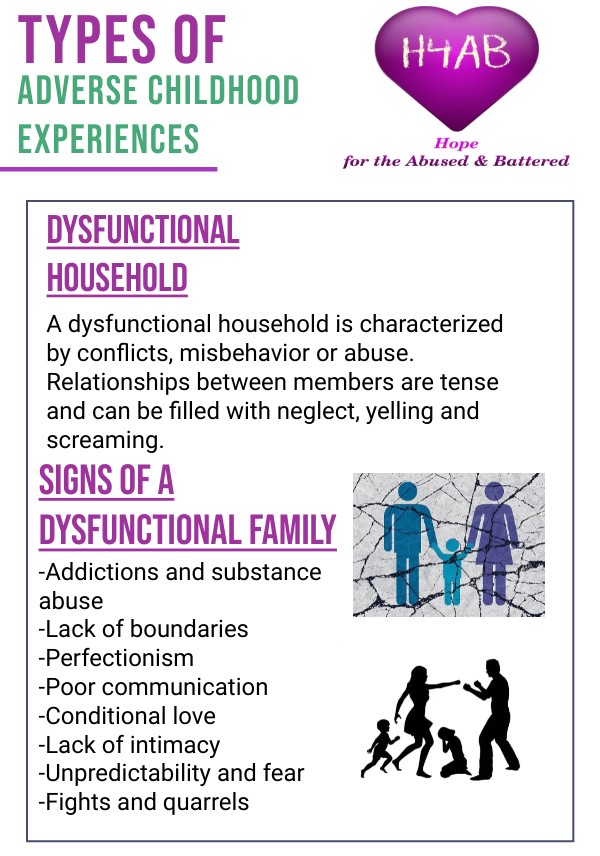To conlude our series on ACEs, today we are going to consider dysfunctional families. If you’ve ever seen some TV shows or movies, in some of them they try to portray a dysfunctional family in action. The only problem is that these movies often trivializes these types of families and makes light of the situation. In real life, a dysfunctional family is no laughing matter.Families caught in the cycle of dysfunction often face serious abusive issues like alcohol abuse, drug abuse, domestic violence, physical abuse, sexual abuse, and emotional abuse. This type of environment can be toxic to children, and unfortunately, family problems never end there.
Children of dysfunctional families tend to carry on the cycle of dysfunction into their own lives and into their own families. A dysfunctional family is one that is mired in conflict, chaos, a lack of structure, or indifference so that the child’s physical and emotional needs cannot be met. Life in a dysfunctional family is emotionally tumultuous. Relationships between members of the family are typically tense. Abuse, neglect, and secrecy are common, and yelling or screaming are often the only means of communication. Some dysfunctional family examples are:
-In a two-parent household, the dad has a drinking problem. When he comes home drunk, he physically abuses anyone and everyone who gets in his way. The next morning, he reminds the family that what happens in their house stays in their house, and they should never tell anyone what goes on there.
-Both parents are addicted to drugs. The oldest child must routinely step up to help with the little ones. That child cleans the house, makes dinner for her siblings, and makes sure they do their homework every night.
-A single mother treats her oldest child like a best friend and a confidant. The mother relies on this child for her emotional needs, and she doesn’t like it when the child goes out with and socializes with her own friends. What then happens is that the family roles in these households are usually reversed.
Children are more in charge of their own daily lives when their dysfunctional parents are unable to do so and they are ruled by a dictator parent, who has no regard to the wishes or feelings of the other family members. The dominant parent is demanding but gives very little back in terms of love, support, and positive reinforcement. The children’s mistakes and shortcomings often have severe consequences, including yelling and spanking.
If you recognize some of the signs of dysfunctional family behavior listed above, you may already recognize their effects on you. However, it can be a long process for some to see these signs.Having low self-confidence or low self-esteem are examples of how your family can disrupt your life. Social anxiety and unexplained aches and pains can even be part of it.It’s common for these traits to repeat themselves throughout generations. Your parents may have picked up on cues from their parents, which their parents picked up from their family. Many of us even grow up thinking that our dysfunctional families’ behavior is normal.
Whichever form of family dysfunction affects your home life, understand that you can overcome these issues. You don’t need to let them ruin your life. Here are some powerful steps that can help you heal from a dysfunctional upbringing.
1) Adopt brain healthy habits: Even if your brain bears the emotional scars of childhood abuse, you can improve your brain function, which will enhance every area of your life.
2)Find a support network. If your family unit isn’t there for you, find friends, a church group, a support group, or a therapist who can be a good listener and be there for you when you need help.
3)Work on relationship skills. Even though you didn’t grow up with healthy relationships, you can learn to develop strong bonds with others.
4)Stop being a victim. When you are a victim, you are powerless to change anything. Only when you take responsibility for your own behaviors can you gain the power to make changes.

